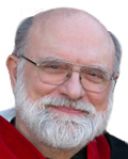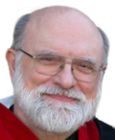
I want to start off by thanking all of you who have responded to the first blog posting.
Becky, I know that "too much" dream memory can seem like a burden rather than a gift, but in my experience, when people (including me!) report feeling "overwhelmed" by the volume and intensity of their dream recall, it's a very reliable indicator that the central issue is a combination of frustrated creative impulses and ideas blended with an unconscious habit of self-discipline and self-control that has at its core a fundamental mistrust of the spontaneous, unbridled unconscious energies that reside below the surface of the waking ego/self-concept. When dreams come in such numbers and intensity, it's a little like waking up in the morning and finding so many solid gold bars littering the front steps that it's impossible to deal with them all by hand! They are heavy, and it certainly seems as though there are too many of them - more than I can carry...!
If it were real gold bricks (have you noticed the price of gold lately?) you & I would certainly figure out a way to collect them - a wheelbarrow maybe, or even a forklift. In fact, I believe that is the generic symbolic message of "too many dreams" - it is a joking symbolic advocacy of "using other methods" to gather than in than the habitual reliance on "journalistic" prose narrative.
Too much dream recall almost always a symbolic challenge to the awakened dreamer to use other means of recording and "mining" them for the insights, energies, and gifts of physical health and psycho-spiritual well being that they have to offer - means like poetry, and/or drawing & painting. Often music, (particularly singing), authentic movement (trying to reproduce the physical gestures and postures experienced in the dream), will suddenly transform the "overwhelming" quality of the dream memories from a depressing burden into a vibrant source of creative energy!
In order to do this, I need to overcome my fear that I will "distort" the dream to serve my own selfish purposes if I don't discipline myself with the habits of accurate journalistic prose descriptions - to trust my unconscious sel(ves) enough to play with the dream and render the dream experience so that its messages of health & wholeness will reveal their gifts - not weigh me down with their heavy burden. The burden is created, for me anyway, by an unconscious mistrust of my "unsupervised" self.
Consciously letting go of this idea has certainly been a liberating experience, an experience shared by the other people I know who have made the effort overcome their "secret" mistrust of our spontaneous, playful, creative, previously unconscious selves When we have allowed ourselves to do something other than "write accurate news stories" about the events, activities, and feelings in the dreams, the result has always been a lifting of the burden, and renewed sense of gratitude and excitement for the dreams themselves.
THE WELSH "DREAM KILLING"
A number of people have been asking to blog about the news stories coming out the Great Britain about the holiday trailer camper who killed his wife - apparently "acting out a dream" while still (at least partially) asleep.
Most of my dream research colleagues, here in the US and in Britain, have been talking about "RBD" (REM Behavior Disorder) as the culprit in this tragic business. REM, as you will recall, is the abbreviation for "rapid eye movement", the involuntary ocular motions under closed eyelids that characterize a phase of sleep that is demonstrated to be associated with dreaming in human beings, and apparently in all warm-blooded animals with eyelids, (with the possible exception of the Echidna, or "Spiny Ante Eater" of Australia).
However, I have to say that I am not convinced. Can people do injury to themselves and others while "sleep walking" (to use a generic term)? Clearly, they can, and with some regularity, they do. This is by no means the first such "murder while dreaming" - and, of course, the legal question becomes, "if he was asleep and dreaming, can it actually be 'murder'?"
The British courts, after hearing some opinions from medical doctors and dream researchers, have concluded that in this instance, the killing was not murder because the man suffered from "chronic nightmare disorder" and was taking medications to "control" it - medications that also apparently contribute to EDD (erectile dysfunction disorder). When he and his wife went off to the seaside in their little trailer on holiday, he decided - apparently with medical concurrence - to go off his meds in order to make it a more enjoyable holiday. The courts decided that the effects of going off his medication contributed to his "acting out his dream" and killing his wife in the process of dreaming that he was fighting off "wide boys" (a British-ism for "juvenile delinquents") who he believed were "invading the trailer."
Does this mean that this story is merely a particularly tragic and unfortunate example of RBD? I don't think so, because I am not even sure that RBD has been sufficiently documented to warrant being called a "medical disorder".
I even blogged here earlier in November, (before any of this happened in Wales), about the unfortunate tendency for the stunning success of dream research focused on REM sleep to eclipse the understanding that while all REM periods appear to dreaming periods, NOT ALL NON-REM periods appear to be dreamless sleep. Dreams do take place in periods other than REM.
The REM studies have been noticeably unproductive in telling us more about the whole range of "parasomnias" - (sleep walking, sleep talking, bed wetting, night terrors, and the like - physical actions while still asleep, apparently acting out dream events without ever waking up). This lack of success is directly connected to one of the primary defining characteristics of REM sleep, namely that the voluntary nervous is isolated and neutralized in REM, preventing any physical acting out of dream experiences.
Ever since the first news stories started appearing, I have been researching on the net and e-mailing colleagues in the International Association for the Study of Dreams, (IASD) to see where the research, (if any), proves that any of these dramatic parasomnias have been scientifically observed to occur during REM sleep. All I have been able to find is stories about the few laboratory studies of habitual sleep walkers & sleep talkers, all of which suggest that these behaviors are NOT exhibited during REM.
We have known for a long time that the parasomnias appear to be associated with under-studied states of NON-REM dreaming. At this point, barring evidence to the contrary, I have to say that we should probably call the death in Wales a tragic case of "NRDBD" - (non-REM dream behavior disorder) - and that a significant factor contributing the event was the relatively casual and abrupt cessation of the patient's medication.
I believe the legal verdict is correct. I believe the man acted, not even out of "confusion" but rather was indeed "acting out his turbulent dream". (Even St. Augustine wrote: "Thank God I am not responsible for what I dream".)
The media emphasis on the dangers of stopping any serious medication too abruptly is also correct, in my opinion, but the blithe assumption that because he was acting out his violent dream, he must have been in REM sleep appears to me at this point be unwarranted.
This is an important distinction for a couple of reasons. It is important because the story as it is being told at the moment is masquerading as "science" - using "scientific terms" like "RBD" - and is contributing to the lopsided and fundamentally incorrect view of dreams and dream research. It is also important because it suggests that the situation can adequately be grasped and understood solely in terms of chemicals and neurological dysfunctions. This attitude confirms the idea that the proper way to understand (and ultimately "control" messy, irrational dreaming) is more & better biochemistry, ignoring the emotional and symbolic aspects of all dreams and the events that are influenced by them.
This tragedy is a "dream event", and as such it has levels of symbolic implication that are just as important as the biochemistry, (if not more so). All the stories take it for granted that "of course" lethal struggles with "invading juvenile delinquents" are a reasonable response - (too bad his poor wife "got in the way"). A much deeper and from my point of view more important question is "what part of myself that is symbolized in my dream by 'violent young men attacking me' would I rather kill than learn to know better?"
This is certainly the deeper question to ask about the "chronic nightmare disorder" for which the poor man was being treated originally. The story is being presented as a failure to properly manage his withdrawal from medication, rather than asking the more difficult, more significant question of why was he being treated chemically instead of, (or in concert with), an effort at "insight therapy" into the meanings and implications of his recurring nightmares?
Dreams have meaning. Nightmares have particularly pressing and "difficult" meanings. The unquestioned assumption that the appropriate way to treat "nightmares" is to simply medicate them away, (to repress them more efficiently with aid of medication), is, I believe, the larger story here.



